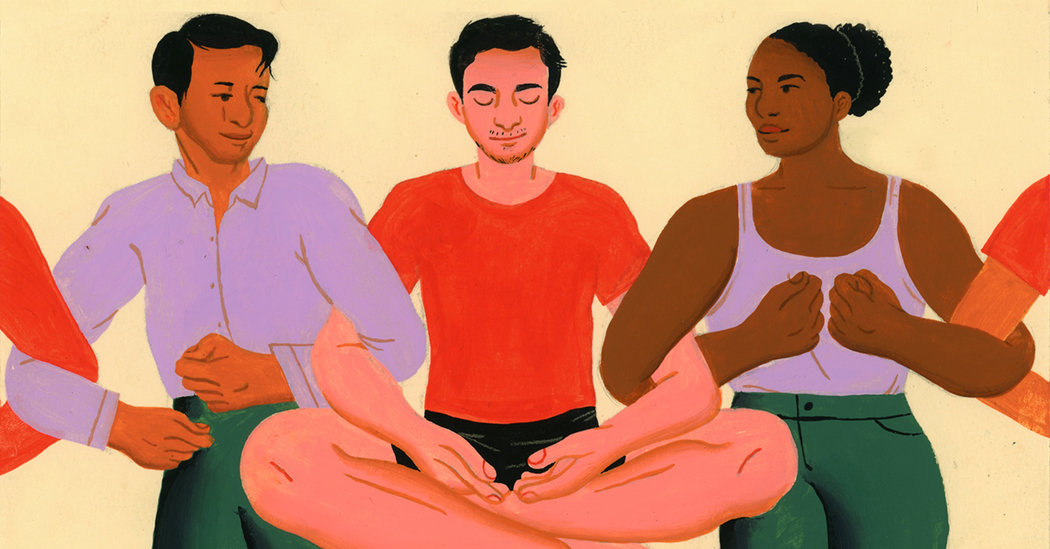
Loneliness is bad for your health. Social isolation is associated with a significantly increased risk of premature death. And the problem resists fixing; solitary people who participate in experiments meant to nudge them into joining groups tend to have high rates of recidivism. According to a study published this month in Proceedings of the National Academy of Science, however, it might be possible to reduce loneliness by using cellphones to teach a particular type of meditation.
Researchers from Carnegie Mellon University and several other institutions recruited 153 men and women who considered themselves stressed out — the study was slightly mischaracterized to disguise a primary concern, loneliness. Next, the volunteers completed questionnaires: They were asked about their social networks, their interactions with others and their feelings of loneliness, if any. Their baseline levels of sociability were established through texts that prodded them to answer questions about what they were doing and with whom. This monitoring lasted three days.
The subjects were then randomly divided into three groups and given an app for their phones. The app gave the control group general techniques for coping with stress. Another group was taught mindfulness through the meditative method of paying close attention to the moment and focusing on breathing and other sensations. The third group received those and additional instructions: Take note of and say “yes” aloud to all sensations, a process that trained the subjects to be attentive and approach what the researchers dubbed “equanimity.” Every day for two weeks, the subjects were tasked with using their app for 20 minutes and practicing for another 10 minutes. Afterward, they filled out the questionnaires again and went through another three days of monitoring.
Little changed for those in either the control group or the one taught attention-only mindfulness. But the subjects whose training included acceptance and equanimity were measurably more sociable. Their daily routines, after using the app for two weeks, typically included several more interactions with people that lasted at least a few minutes, and their questionnaires showed a decline in their feelings of loneliness.
Because loneliness, like mindfulness, is a subjective state, it’s difficult to make definitive conclusions about why and how a focus on acceptance prompted greater sociability. But David Creswell, an associate professor of psychology at Carnegie Mellon who conducted the study with the lead author, Emily Lindsay, believes that “the equanimity piece is key.” The poise it teaches, he says, may help people become less self-judgmental, less self-conscious, more amenable to interacting with others.
“People who are lonely usually feel bad about themselves because they are lonely, making it harder for them to put themselves in social situations,” Creswell says. A certain kind of mindfulness might help people “care less about feeling bad.” They might attend the party they would otherwise skip.

